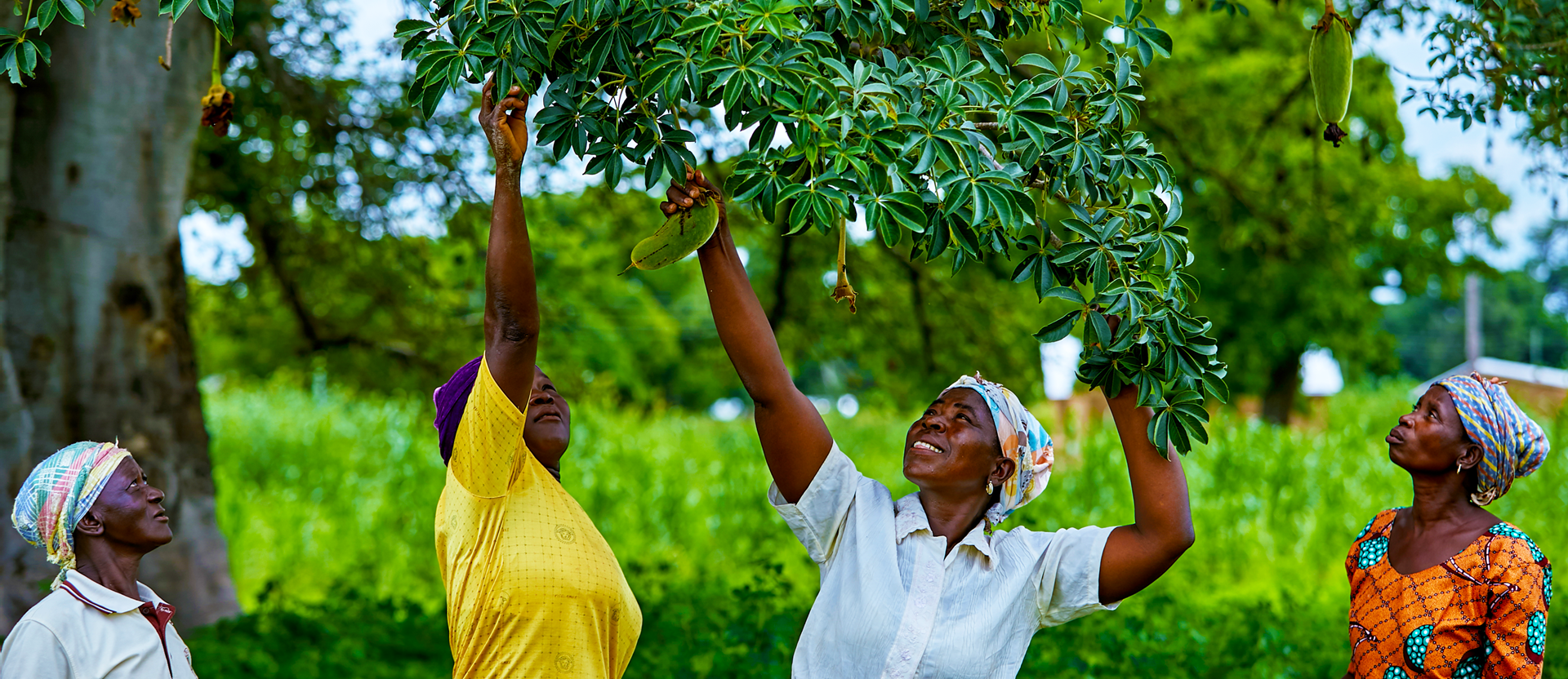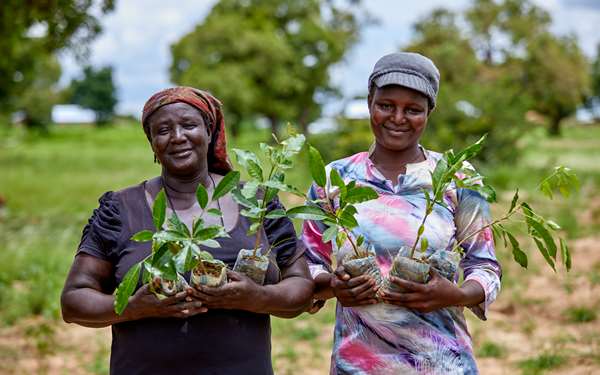
Great Green Goal Appeal
Choose how you would like to give
Our 2023 spring appeal has now ended. Thank you for your support - your donations are helping transform land, communities and lives in Africa's drylands.
In Africa's drylands, an epic green movement is underway - the Great Green Wall.
This ambitious project aims to grow a wide belt of trees across the Sahel region. It will be a mosaic of restoration projects, bringing degraded landscapes back to life, holding back the desert, and creating sustainable jobs for millions of people who live there. The Great Green Wall is a symbol of hope, 8000 km long.
That is why this spring, Tree Aid is launching the Great Green Goal appeal. Our appeal will rapidly scale up planting of the Great Green Wall, now, before it's too late.
Donate now and join us in our Great Green Goal.
Why is the Great Green Wall needed?
The drylands of Africa haven't always been difficult places to live. But in recent years, the communities that live there have been hit hard by the dual burdens of poverty and a rapidly changing climate. They have watched their world transform, from a dry but thriving region into a bare and unfertile landscape. Because of poverty, deforestation has been increasing. And every day, the desert is coming closer.
Trees can provide a solution. By planting a Great Green Wall across the Sahel region of Africa, we can help restore the land, offering vital sources of nutrition and income for people already at the mercy of the climate crisis.

Time is running out
The climate crisis means that time is running out to hold back the desert. We urgently need to scale-up planting before we reach a tipping-point of 1.5 degrees in global heating, where even drought-resistant trees will struggle to survive.
In the Sahel region of Africa where Tree Aid works, temperatures are increasing much quicker, leaving people even more vulnerable, with the land unable to support life.
That's why we need to increase planting of the Great Green Wall, now, before it’s too late. You can be part of this incredible solution to kickstart a greener future, but we need to grow 1000 trees per hour to turn this vision of hope into a reality.

What will the Great Green Wall look like?
The Great Green Wall will span the width of Africa, bringing nutritious food, and livelihoods to millions of people, and restoring thousands of hectares of land that have been turned to desert by climate change.
It will look like a mosaic of restoration projects, 8000 km wide. Grown and looked after by the millions of people who live there, it will provide communities with all the tools and training they need to succeed, empowering them to manage their own land for future generations.
